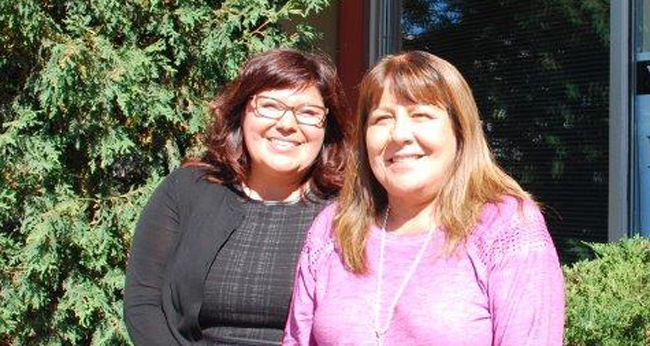Of tools and torts: Friendship Centre staff to be trained in seeking justice against Indigenous discrimination

By Laura E. Young
SUDBURY – Arguably most indigenous people have faced some discrimination, either in a subtle form or as obvious as the Northern sky.
But the Aboriginal Human Rights Training Initiative aims to change that by ensuring front line staff at Ontario’s Friendship Centres are trained to promote access to legal services for indigenous people whose human rights may have been violated.
N’Swakamok Native Friendship Centre in Sudbury is vying to be a host or a hub for this training. N’Swakamok also played host to the launch of the justice initiative on Tuesday, September 22.
Over the next month, five centres across Ontario will be selected to be training centres. The initiative involves a partnership between the Ontario Federation of Indigenous Friendship Centers (OFIFC) and the Human Rights Legal Support Centre (HRLSC). The Law Foundation of Ontario is funding the program.
“If anything happens they (staff) will know who to call to explain what has happened and see if it’s legitimate to pursue,” says Marie Meawasige, N’Swakamok’s executive director
The ultimate goal is to make an impact on the discrimination people face, says Lori Mishibinijima, legal counsel and coordinator of the Human Rights Legal Support Centre’s (HRLSC) Aboriginal Services and Outreach. She is based in Toronto but hails from the Wolf Clan at Wikwemikong First Nation on Manitoulin Island.
“The thing with human rights is that there are no police to go out and make sure people follow the (Human Rights) Code. The only way that people are going to know what is wrong is by telling them. A human rights tribunal is one way of doing that, among others.”
The curriculum to train staff has been created. The training takes about half a day, she says.
And while that doesn’t make anyone an expert in human rights, they will be able to identify the grounds in social areas, like housing, and know the process or who to call to see if it was a human rights violation under the province’s Human Rights Code, Mishibinijima says.
Meawasige would involve all her staff in training because it would increase their skill level and knowledge. They would share that knowledge with family and friends, thus expanding their network, she adds..
N’Swakamok offers programs for all age groups, from pre-natal through to seniors, and serves over 10,000 people in the Sudbury region. The data isn’t available yet on how widespread the problem of human rights violations is, says Meawasige.
“All we know is that when you speak to your family and friends you know a lot of unfair things have happened. They were treated badly at the store, by the police or whomever. We know that happens but we don’t have the number.”
For Mishibinijima, when the justice initiative is fully established, the key will be that friendship centre staff have built trust with their clients and will be able to identify if any violations have occurred. Then they can talk to their clients about what the HRLSC offers. The services are accessible; aboriginal lawyers are available.
“Then hopefully, because somebody who they trust was telling them what their rights are, they are more willing to follow through and call our office,” she says.
http://www.ofifc.org/ http://www.hrlsc.on.ca/en/welcome

